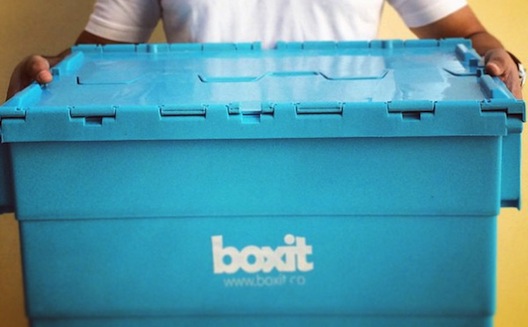 For decades now, self-storage in America has been big business. Fuelled by that all-American accumulative consumerist instinct, by 2009 (when the last Self Storage Association report was published) self-storage entrepreneurs in the US had built more than 2.35 billion square feet of storage space, enough for all 300 million+ Americans to physically stand under self-storage roofing. Between 2000 and 2005, over 3,000 self-storage facilities went up every year, and to this day trade conferences advertise discussions around problems most entrepreneurs would love to face: ‘How long can robust revenue growth continue?’ and ‘How difficult will it be to continue current performance levels?’
For decades now, self-storage in America has been big business. Fuelled by that all-American accumulative consumerist instinct, by 2009 (when the last Self Storage Association report was published) self-storage entrepreneurs in the US had built more than 2.35 billion square feet of storage space, enough for all 300 million+ Americans to physically stand under self-storage roofing. Between 2000 and 2005, over 3,000 self-storage facilities went up every year, and to this day trade conferences advertise discussions around problems most entrepreneurs would love to face: ‘How long can robust revenue growth continue?’ and ‘How difficult will it be to continue current performance levels?’
Small town brick-and-mortar entrepreneurs and their internet savvy counterparts alike have benefitted from the sector’s boom. A new, digitized storage system is making waves – and getting some big investment – in the U.S. Startups BoxBee and MakeSpace, both launched in 2013, pioneered the new model: rather than renting a storage unit at a huge facility with thousands of similar units, users can digitally manage what they have in storage, and only pay for the space they use. Even better, rather than having to schlep their own boxes to and from the storage facility, customers use the mobile app to order their boxes, and arrange for pickup and delivery.
Both startups received big investments about a year after launch, in 2014: BoxBee raised $2.3 million from investors including Google Ventures, 500 Startups, and Techstars; MakeSpace closed an $8 million round led by Upfront Ventures.
But American-style consumerist accumulation of things is not, of course, limited to America. Premlal PK (pictured right), cofounder of BoxIt, a digital storage startup launching today, is betting that residents of Kuwait, and eventually the Gulf more broadly, will need somewhere to store their stuff as well.
“The culture of storage is happening in Kuwait,” says Premlal (who requested his surname be withheld) on a Skype call with Wamda, “as more and more Kuwaitis move [out of the family home] to apartments, there are more items to store.” Also, the labor force in Kuwait – and much of the Gulf – is largely made up of immigrants. The white-collar workers in this segment will make up a large part of BoxIt’s customer base, Premlal believes. “These expats can’t own property in the GCC, and they live in shared accommodation… they need storage.”
Original article by Stephanie d’Arc Taylor
Continue reading at Wamda:
Physical gets digital for self storage with Kuwait’s BoxIt



















Comments